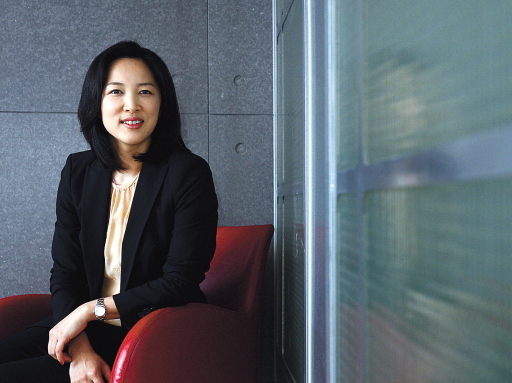The mere thought of speaking in public can strike fear in the best of us. Imagine that dread being compounded by having to deliver a speech in a foreign language.
“Fake till you feel it,” advised Rah Seung-yun, a co-CEO of Oratio, an English communications consulting firm. Rah enjoys a near-celebrity status following her eloquent speech as a communications director at Pyeongchang’s final presentation for the 2018 Winter Olympics bid in Durban, South Africa, in July 2011.
Noting that confidence is key to effective speechmaking, Rah advises “practice, practice, practice” to boost your level of confidence.
If even this doesn’t work and you are still feeling shaky, just fake it: Looking and acting confident can actually make you feel confident.
“Don’t apologize for poor English in advance. Very often Koreans will begin their speech by saying ‘Please excuse my poor English.’ Don’t do that,” Rah said.
Confidence was something that President Park Geun-hye clearly demonstrated when she addressed the joint U.S. Congress last week.
“The delivery was very good and very clear. She sounded authoritative, confident,” said Rah, commenting on Park’s 34-minute speech in English.
“Her vocal tone has weight and she uses gestures effectively. This adds impact and visual cues to what she is saying and voice becomes colorful as well,” she added.
As a communications consultant, Rah is sensitive to the difficulties Koreans have in public speaking in English, difficulties which she attributes to carrying over characteristics of the Korean language into English.
These include dropping the final consonants, difficulty in distinguishing the length of the vowels and finding the right number of syllables and the syllables that need to be stressed.
Body language is another aspect of communications in which many Koreans falter. “Koreans think using gestures is too distracting, unprofessional. And when they do use gestures, they don’t always match the context,” Rah noted. “You should deliver a speech with voice, face and gesture.”
 |
Oratio co-CEO Rah Seung-yun poses during an interview with The Korea Herald at the Oratio office in Hannam-dong, Seoul, Friday. (Ahn Hoon/The Korea Herald) |
Another tip for speaking well is to listen well. “Koreans often only listen half way. Listen to the key words, and use the key words to form answers,” she said.
Difficult words and long sentences are to be avoided. “Short, simple is best,” Rah advised.
In fact, the success of the PyeongChang 2018 Olympic & Paralympic Winter Games Bid Committee’s final presentation can be attributed to sticking to this simple rule.
“We used short sentences, simple words and customized the presentation for each speaker. If a speaker had trouble with a word, it was replaced.”
No matter how well prepared you are with your speech, you must grab the audience to effectively communicate your message.
“Look at them. It is not just about giving information. You need to convince them and in order to achieve that, you need to be convinced yourself first. The audience needs to feel it and you must bring emotion to it,” she said.
And you can grab people’s attention even before you speak. “Go in with an open, confident body and smile. People’s anticipation will be heightened. Be conscious that you are on stage and afterward, linger and make a lasting impression.”
How about memorizing the speeches?
“I advise against memorizing speeches verbatim. It is better to look at the script. You can have more spontaneity, flexibility with the script on hand and make eye contact to confirm that the audience got it,” she said. “It is much more important to deliver accurately.”
As for her own presentation at Durban, she said she was able to do what she did because she herself was convinced of her message. “It was in February 2011. The IOC evaluation commission was visiting Pyeongchang. There was the heaviest snowfall in Pyeongchang in years, yet people lined up in the record snow, dressed up in sports gears. The scene brought to life for me that 89-90 percent of the people supported the bid,” she recalled.
While she remains involved in sports today as a member of the international committee of the Korean Olympic Committee and meets regularly with sports figures and IOC members, she is also committed to growing her 10-year-old communications consulting business.
“We offer consulting on what to say and how to say it,” Rah said, noting that “what we say” is becoming more important as Koreans reach out to different audiences and global English is increasingly accepted.
“English will not be such a thing to dread anymore. It is just a tool to communicate with the global audience,” Rah said.
By Kim Hoo-ran (
khooran@heraldcorp.com)








